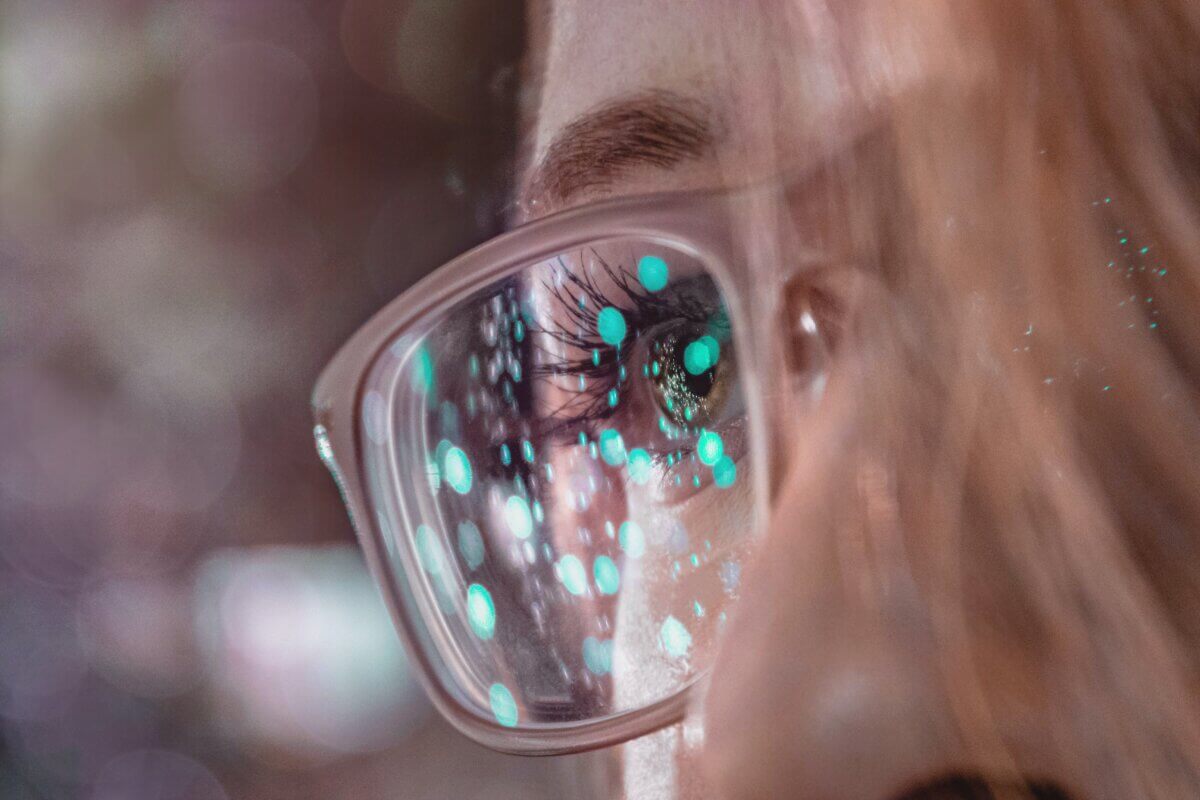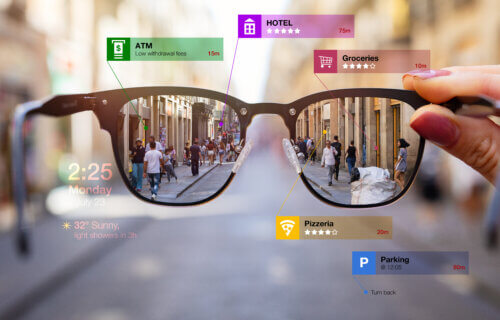ITHACA, N.Y. — Augmented reality glasses, often called smart glasses, can certainly make life easier for the wearer, but what about everyone else within view? Researchers from Cornell University warn that smart glasses can potentially create a major “power imbalance” between the haves and have-nots. More specifically, researchers warn someone wearing such glasses could covertly Google your face or record your conversations without your knowledge.
Up until now, the majority of research regarding AR glasses understandably focused on the experience of the wearer. Scientists at the Cornell Ann S. Bowers College of Computing and Information Science and Brown University collaborated on this latest project, an investigation into how this technology affects both the wearer and the people around them.
The results showed that while people wearing smart glasses usually report a decline in anxiety, the opposite held true for everyone else. Most current AR glasses superimpose virtual objects and text over the wearer’s field of vision to create a “mixed-reality” world, similar to the futuristic display Tony Stark sees in his glasses in the Marvel comic movies.
Some of these glasses are rather big and bulky, but the technology is advancing rapidly, and many smart glasses are quickly becoming indistinguishable from regular glasses. However, many are now concerned these covert spectacles could lead to secret recordings of conversations and even the creation of deepfakes with peoples’ images.
To conduct this research, Jenny Fu, a doctoral student in the field of information science, and co-author Malte Jung, an associate professor of information science, collaborated with Brown University’s Ji Won Chung, a doctoral student, and Jeff Huang, an associate professor of computer science, and Zachary Deocadiz-Smith, an independent extended reality designer.
Together, researchers analyzed five pairs of people, with each pair containing a wearer and a non-wearer. Each pair discussed a desert survival activity. The wearer in each pair was given a set of Spectacles, an AR glasses prototype on loan from Snap Inc., the company behind Snapchat. Spectacles look like avant-garde sunglasses. For the purposes of the study, it came equipped with a video camera and five custom filters that transformed the other person (non-wearer) into a deer, cat, bear, clown, or pig-bunny.
After that activity, everyone was assigned to a participatory design session to discuss how AR glasses can be improved — for both wearers and non-wearers. Participants were interviewed and asked to reflect on their personal experiences with the AR glasses.

While wearers said the glasses and their fun filters lowered anxiety and helped put them at ease, non-wearers reported feeling disempowered because they didn’t know what was happening on the other side of the lenses. Non-wearers also felt disturbed that the filters took control over their own appearance away from them. The chance that the wearer was secretly recording them without consent – especially when they didn’t know what they looked like – put the non-wearers at a distinct disadvantage.
With all this in mind, non-wearers weren’t completely powerless. A select few demanded to know what the wearer was seeing and even moved their faces or bodies so as to evade the filters. This aggressive approach afforded them at least some control over the situation.
“I think that’s the biggest takeaway I have from this study: I’m more powerful than I thought I was,” Fu says in a university release.
Another issue emerged. Like many smart glasses, Spectacles have darkened lenses that help the wearer see the projected virtual images. This lack of transparency degraded the quality of the social interaction, researchers admit.
“There is no direct eye contact, which makes people very confused, because they don’t know where the person is looking,” Fu explains. “That makes their experiences of this conversation less pleasant, because the glasses blocked out all these nonverbal interactions.”
So, what can be done to foster more positive experiences for people on both sides of the lens? The study’s participants themselves suggest that smart glasses designers add a projection display and a recording indicator light. These additions would make it clear and apparent to everyone nearby what the wearer is seeing and recording.
Fu also recommends that designers test out their new smart glasses in social environments and hold a participatory design process like the one included in this study. Additionally, they should consider these video interactions as a data source; that way, non-wearers will have a voice in the creation of this new mixed-reality world.
The study was presented at the 2023 ACM Designing Interactive Systems Conference.


Ive alread had to deal with several cases of invasion of privacy issues due to people trying to secretly record highly sensitive information using so called “smart glasses” disguised as prescription lenses.
In my role as a security professional, these devices create a huge issue and I feel there should be a clear indication (bright red led perhaps)that they are recording or taking still photos, and that indicator should not be able to be disabled bu the end user.
People are already being recorded by security cameras everywhere, if you don’t want to be recorded don’t go in public areas, otherwise it’s part of the 1st amendment.
Anybody and everybody with a cellphone can discreetly or obnoxiously record anything they see in public.
Tourists who record their travels are annoying, but hey that’s life, and if you’re camera shy, once again don’t go in public or where sunglasses and a COVID-19 mask!
Who couldn’t see this coming and expect it to become more and more stealth as our privacy is no longer a thing.